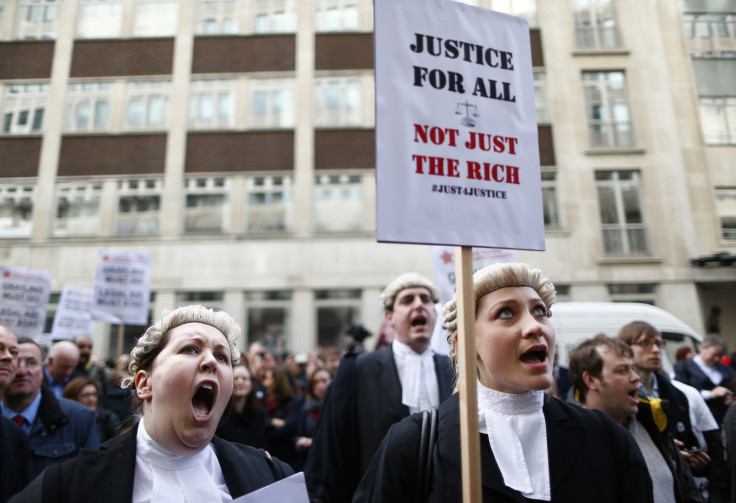Barristers refuse new UK crown court cases and back legal aid in fight to save system

Cuts to legal aid are being rubbished by the government's own barristers. On Monday (27 July), barristers began a strike and refused to take on any new crown court cases until an 8.75% cut to criminal solicitor fees is dropped.
Since the beginning of July, solicitors in the private sector have been refusing to work at the new rates. Their government counterparts decided to join them after a Criminal Bar Association vote 14 July.
"I am horrified by the attacks on legal aid and access to justice by the government," said Mark George QC, a barrister at Garden Court North Chambers in Manchester, on his blog.
"Let's make sure this action forces government to change course on legal aid cuts," he wrote on Twitter on 27 July.
"Industrial action by barristers" makes headlines on @BBCr4today Let's make sure this action forces govt to change course on legal aid cuts.
— Mark George (@Mark_George_QC) July 27, 2015
The CBA vote went into effect on 27 July. "Action adopted simultaneously by both the Bar and solicitors would be most effective," announced the CBA in a document widely circulated among barristers last Wednesday. "It is time to re-focus the action to affect crown court work."
The past two governments have made cuts to the UK's legal aid system. The system once drew on £2bn in public money to help those unable to afford a solicitor to gain access to the law and form a viable defence.
From 2010 to 2015, that amount of legal aid was cut by £350m annually by former justice secretary Kenneth Clarke. Now solicitors are being asked to cut their fees by 8.75%.
The CBA notice said: "After three weeks there is, sadly, an increase in unrepresented defendants in the crown court from the most serious charged with murder to the minor offenders committed to the crown court for sentence."
The CBA said its "sole aim is to ensure the survival of access to Justice which is threatened by the level of cuts". It said Lord Chancellor Michael Gove, Secretary of State for Justice, is the only one who can instigate a solution.
"One day criminal legal aid may be the reason why someone you care for does not wrongly end up with a criminal record," said David Allen Green, head of litigation at firm Preiskel & Co, and a legal columnist at the Financial Times.
One day criminal legal aid may be the reason why someone *you* care for does not wrongly end up with a criminal record. #SaveLegalAid
— Jack of Kent (@JackofKent) July 27, 2015
The London Criminal Courts Solicitors' Association points out that "some firms are starting to have severe financial problems" since they have not been taking on new cases since 1 July.
If the dispute is drawn out by Gove, the CBA said, the protocol it has adopted will allow firms to return to crime work in lower courts to maintain cash flow. Any firms who flout the rules, the CBA said, will "dishonour the profession".
© Copyright IBTimes 2024. All rights reserved.






